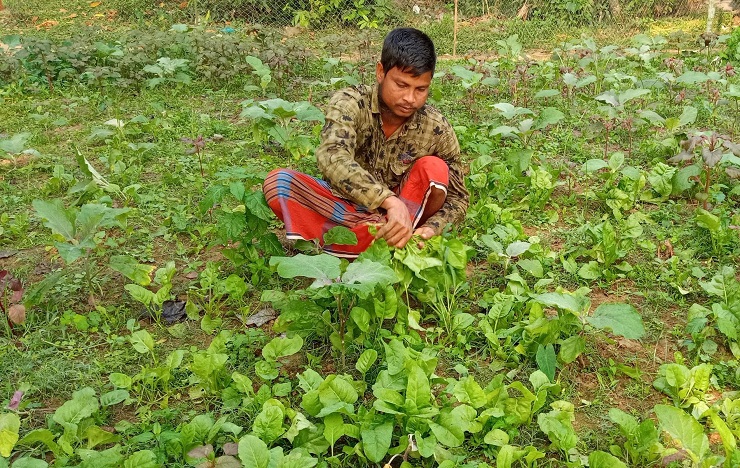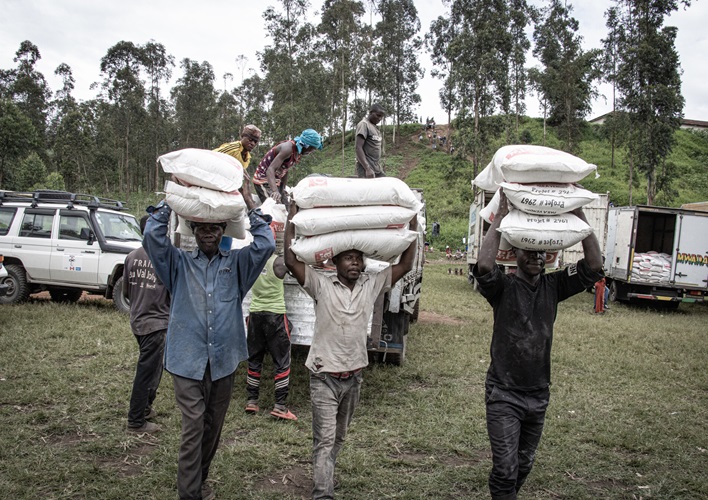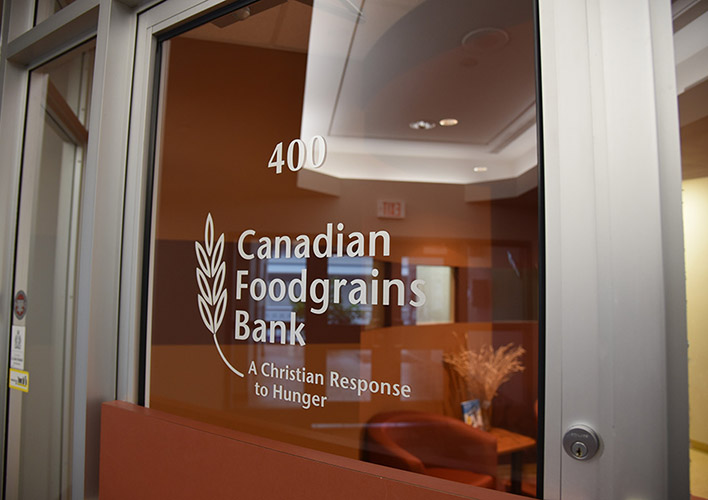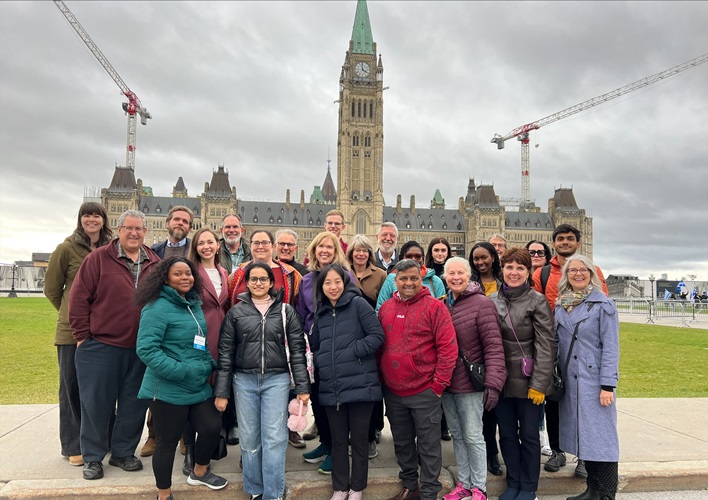In 2021-22, Canadian Foodgrains Bank approved funding to support 442,373 people facing long-term hunger and malnutrition in 24 countries through our members and their local partners.
Our development work focuses on supporting families’ efforts to lift themselves out of poverty. This often involves working with communities to bolster their ability to rebound after natural disasters including: helping families rebuild their livelihoods, offering training on conservation agriculture, and improving nutrition for families.
Bangladesh
Al Amin Mia is a small-scale farmer with land in Chaklengura village that he cultivates to help feed his family. In the past, he tried to grow different types of vegetables, but was never able to see good results.
World Renew continued supporting World Renew Bangladesh and Participatory Action for Rural Innovation (PARI) with a one-year extension of a nutrition project in northern Bangladesh. The country faces formidable challenges such as adolescent pregnancy and neonatal mortality and the program focuses on care and nutrition during pregnancy. The project also offers training for micro-enterprises and leadership for the most vulnerable households.
Al Amin’s wife Mahima is part of PARI’s women’s health development group and at one of the meetings was introduced to training for homestead gardening. Since Mahima was pregnant, the group selected Al Amin to receive training.
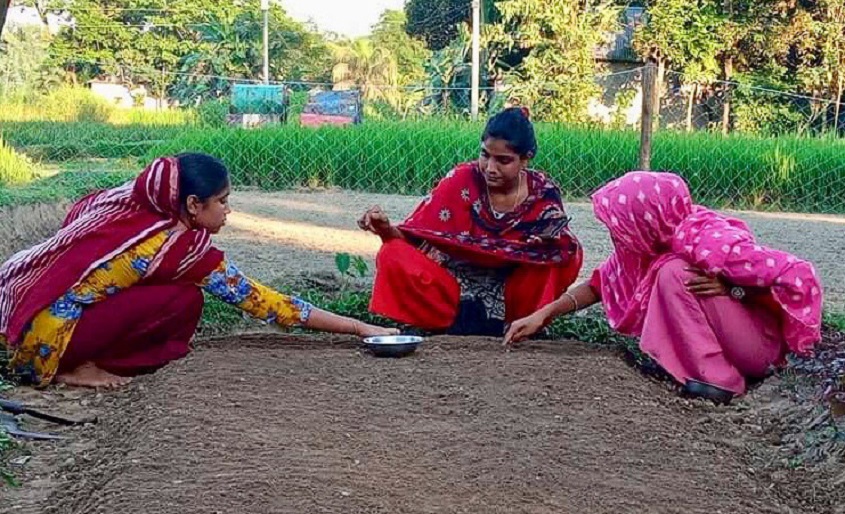
Al Amin’s family (wife Mahima on left, and two sisters).
He made compost and beds and successfully grew vegetables like red and green spinach and tomatoes.
“This training has been very effective for me. It was practical in the garden and I got continual support from the agriculture officer. My wife didn’t want to eat vegetables before as they were expensive, but she and my family gradually became used to eating vegetables,” he explained. “I also demonstrated my garden to others and two neighbours are now growing vegetables and eating from their garden. I will continue gardening like this in the future and give my education to others. Thank you for such effective training that benefits my whole family and community.”
Indonesia
ADRA Canada is supporting ADRA Indonesia with an agriculture and livelihoods project in Central Sulawesi, Indonesia.
Since an earthquake in 2018 that resulted in extensive loss of livelihoods, farmland and assets, the region has faced high food insecurity and relied on food assistance. Loss of livestock and little access to employment meant a general decline in household incomes.
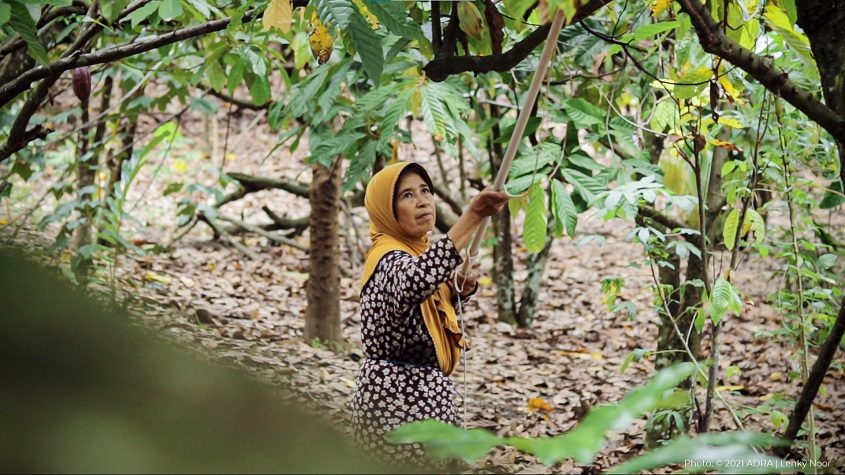
Ibu Sriyani worked on her cocoa farm prior to the devastating 2018 earthquake.
Before the earthquake, Ibu Sriyani, a single mother of four who lives in Tuva village, provided for her family working on her cocoa farm. She lost her house and farm in the earthquake and sometimes wasn’t able to buy food for days.
“We lost almost everything, our house, our farm, our source of livelihood and income,” recalls Sriyani. “We couldn’t even buy food since local stalls were all destroyed.”
ADRA Indonesia approached her to partake in economic recovery training including advanced cocoa farming techniques. “We learned many things: how to plant, to prune and how to process cocoa into chocolate snacks,” she explained.
She now can provide for her family’s expenses, education fees and support one of her children in university, and is even considering buying wood to build a house.
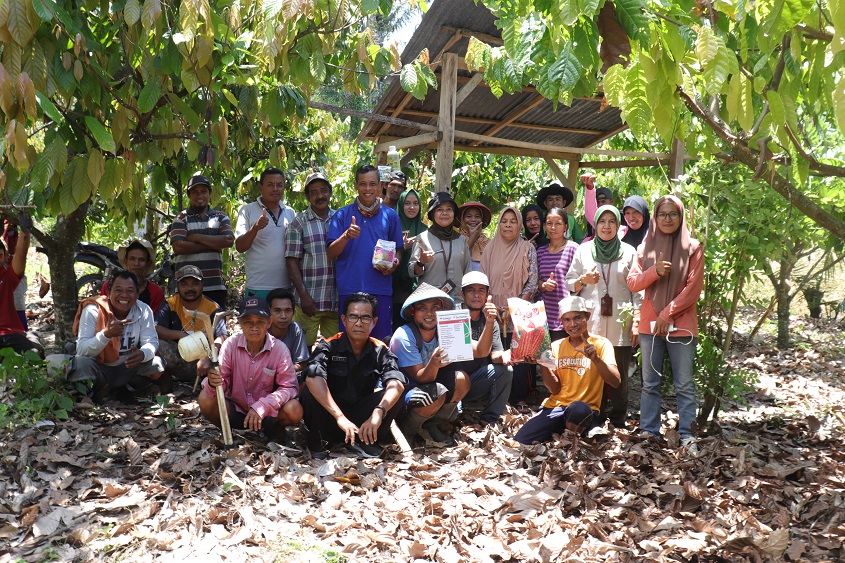
Participants of the advanced cocoa farming training course, implemented by ADRA Indonesia.
This story was featured in the 2022 Annual Report. Download or order your copy here.
